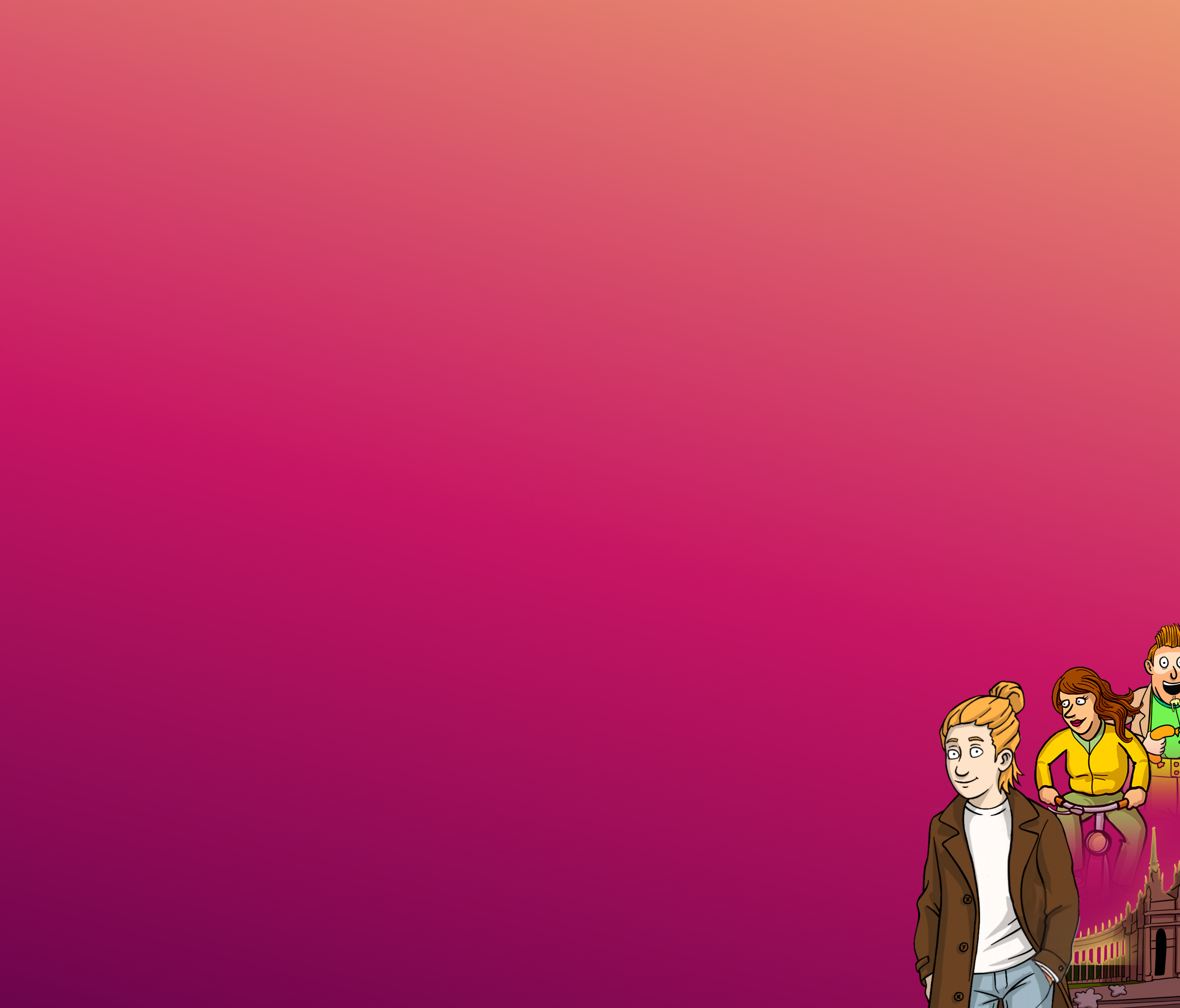Introduction to adjective declination
In German, you have to add an ending to an adjective if it comes before a noun. This is known as "declination". The ending is determined by the gender, the kind of article used (der, ein, etc.) and the case (nominative, accusative, dative or genitive).
Die Gäste sind nett. → Die netten Gäste sind da.
The guests are nice. → The nice guests are here.
Adjective endings are generally split into 3 groups:
- After a definite article (der, die, das, etc.): the adjective takes one of two endings: ‑e or ‑en. We can identify the gender from the article.
das langweilige Fußballspiel
the boring soccer game
die alte Großmutter
the old grandmother
die verliebten Gäste
the lovestruck guests
- After an indefinite article (ein, meine, kein, etc.): the ending normally found at the end of the definite article is added to the adjective:
ein schnelles Auto (das Auto)
a fast car (the ‑s ending from das is added to schnell)
eine alte Großmutter (die Großmutter)
an old grandmother (the ‑e ending from die is added to alt)
mein großer Swimmingpool (der Swimmingpool)
my big swimming pool (the ‑r ending from der is added to groß)
- When there is no article: the ending normally found at the end of the definite article is added to the adjective:
warme Speise (die Speise)
hot food (the ‑e ending from the feminine article die is added to warm)
starkem Regen (dem Regen)
heavy rain (the ‑m ending from the dative article dem is added to stark)
mehrere Gläser (die Gläser)
several glasses (the ‑e ending from the plural article die is present at the end of mehrere)
Note: when there is no article to convey the case (nominative, accusative, etc.), the adjective must convey the case. We always add the ending of the corresponding definite article (der, die, das) to the adjective.
Still facing difficulties with 'Introduction to adjective declination'? Learn and enhance your German grammar through our online German course. Start with a free test and improve today!
What our users say:
Improve your German further and test Wunderbla, online German lessons.

